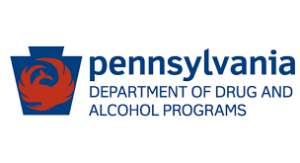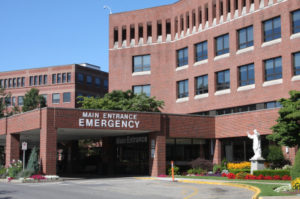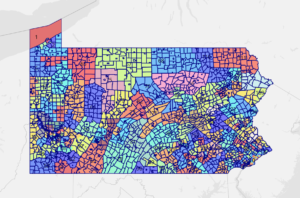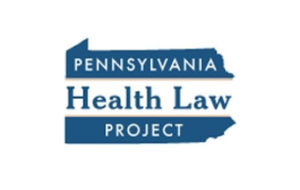PA Health Policy Update for the Week of April 4-8
The following is an update of selected state health policy developments in Pennsylvania for the week of April 4-8, 2022. (Some of the language used below is taken directly from state documents.)
 General Assembly
General Assembly
- The state Senate convened for session in Harrisburg this week.
- The Senate passed House Bill 245 on third and final consideration this week. House Bill 245, which will be sent back to the House for concurrence, reduces the clinical residency requirement from three years to two years for an applicant who has graduated from an international medical college to receive licensure in Pennsylvania.
- The state House and Senate will both be in session next Monday (4/11), Tuesday (4/12), and Wednesday (4/13).
- As indicated by the House Republican Caucus “Week Ahead,” the House is planning to consider, among other bills, House Bill 2401, which makes permanent two COVID-19 waivers that permit non-physician practitioners to order and oversee orders for home health care services and permits the continued use of remote supervisory visits by registered nurses, and House Bill 2419, which expands access to outpatient psychiatric care via telemedicine.
- Several committee meetings are scheduled for next week. The following are health-related.
-
- The House Health Committee will hold an informational meeting on Tuesday, April 12 at 8:00 a.m. regarding “Opioids in the Commonwealth: Lessons learned and next steps.”
-
- The House Veterans Affairs and Emergency Preparedness Committee will meet on Tuesday, April 12 at 9:00 a.m. to consider House Bill 2097, which would make permanent a COVID-19 regulatory waiver that allows certified emergency personnel, such as firefighters with specific first-aid, CPR, and emergency vehicle training, to drive ambulances with an EMT on board.
-
- The House Aging & Older Adult Services Committee will hold an informational meeting on Tuesday, April 12 at 9:30 a.m. to examine long-term-care facility workforce challenges.
-
- The Senate Health & Human Services Committee will meet on Tuesday, April 12 at 10:30 a.m. to consider the following bills.
-
-
- Senate Bill 749, which seeks to provide clarity for employees and employers regarding current ambiguity in the state’s medical marijuana law concerning the use of medical marijuana in the workplace.
- Senate Bill 1121, which requires the Department of Human Services (DHS) to verify wage records from employers and the Department of Revenue for Medicaid and SNAP beneficiaries.
- Senate Bill 1124, which requires DHS to check death certificates at the Bureau of Vital Statistics against Medicaid and SNAP beneficiaries.
- Senate Bill 1188, which seeks to increase awareness, testing, and access to treatment for Lyme disease.
-
 Department of Human Services
Department of Human Services
- The Department of Human Services (DHS) has added two procedure codes to the Medical Assistance program fee schedule for use in laboratory testing for multiple respiratory pathogens, including COVID-19, effective with dates of service on and after March 21, 2022. Find the new codes in this Pennsylvania Bulletin notice.
- DHS’s Office of Mental Health and Substance Abuse Services (OMHSAS) has issued a Medical Assistance Bulletin addressed to hospital emergency departments, county mental health/intellectual disability administrators, base service units, mental health review officers, and county crisis intervention programs to clarify the part of the Mental Health Procedures Act referring to the involuntary commitment process under section 302 and the 120-hour limit on holding a consumer for involuntary emergency examination and treatment. Find the bulletin here.
- DHS has circulated the minutes of the March 24 meeting of the Medical Assistance Advisory Committee.
- DHS has updated its “Monthly Physical Health Managed Care Program Enrollment Report” to include February 22 data.
- CMS has released its 2022-2023 Medicaid managed care rate development guide. This is a federal resource for states to use when setting capitation rates for Medicaid managed care plans. The guide provides details about information that must be included in states’ actuarial rate certifications for CMS to review and approve for rate periods between July 1, 2022 and June 30, 2023. Find the guide here.
Department of Health
- The Department of Health (DOH) has introduced minor updates of its guidance for hospitals and health systems on “whether measures being implemented or contemplated are compliant with the statutory and regulatory requirements under the jurisdiction of the Department.” Among other things, the guidance cites June 30, 2022 as the end date for certain regulatory suspensions that were continued through that date by Act 14 of 2022. Find the updated guidance here.
- DOH has updated its COVID-19 booster vaccine recommendations to reflect recent changes in CDC guidelines.
- DOH has updated its reporting requirements for COVID-19 test results to bring them in line with revised federal requirements.
- DOH has updated information about therapeutics to prevent and treat COVID-19 to reflect federal guidance barring the use of sotrovimab to treat COVID-19 because it is not effective in treating the Omicron BA.2 variant, which is the predominant COVID-19 variant in the country today.
COVID-19: By the Numbers
- Daily COVID-19 case counts climbed for the second consecutive week. The state’s seven-day average of new cases rose nearly 26 percent, from 585 cases on March 31 to 737 on April 7.
- The number of new COVID-19-related deaths declined slightly, on the other hand, with the seven-day average of new deaths down by one, from 18 on March 31 to 17 on April 7.
- The number of Pennsylvanians receiving hospital care for COVID-19, in hospital ICU units, and on ventilators because of the virus held steady over the past week.
- After three weeks with no counties experiencing a high rate of transmission of COVID-19, two Pennsylvania counties found themselves in that category in the past week: Bradford and Pike. Another eight counties – Potter, Montgomery, Philadelphia, Adams, Susquehanna, Montour, Wayne, and Northampton – experienced substantial rates of community transmission. Five counties – up from three last week – experienced low levels of community transmission: Forest, Cameron, Snyder, Juniata, and Fulton. The remaining 52 Pennsylvania counties had moderate rates of community transmission over the past week. Find community transmission and other Pennsylvania-specific COVID-19 data here.
 Stakeholder Events
Stakeholder Events
Department of Human Services – Medical Assistance Advisory Committee – Managed Long-Term Services and Supports Subcommittee – April 12
The managed long-term services and supports subcommittee of DHS’s Medical Assistance Advisory Committee will meet virtually on Tuesday, April 12 at 10:00. To register to participate, go here. The dial-in number is 631-992-3221 and the access code is 766121118#.
Department of Aging – Pharmaceutical Assistance Advisory Board Virtual Meeting – April 13
The Department of Aging’s Pharmaceutical Assistance Advisory Board will meet virtually on Wednesday, April 13 at 8:30. For information about how to participate, see this Pennsylvania Bulletin notice.
Department of Health – Spinal Cord Research Advisory Committee – April 21
The Department of Health’s Spinal Cord Research Advisory Committee will meet virtually on Thursday, April 21 at 10:30. The purpose of this meeting is to review the committee’s work, review the status and progress of the current request for applications, reaffirm priorities, evaluate and refine the process to review the next spinal cord research applications, and address emerging issues. For information about how to join the meeting, see this Pennsylvania Bulletin notice.
Department of Human Services – Medical Assistance Advisory Committee – Consumer Subcommittee – April 27
The Medical Assistance Advisory Committee’s consumer subcommittee will meet virtually on Wednesday, April 27 at 1:00. Go here to register to participate.
Department of Human Services – Medical Assistance Advisory Committee – April 28
The Medical Assistance Advisory Committee will meet virtually on Thursday, April 28 at 10:00. Go here to register to participate.
Department of Human Services – Medical Assistance Advisory Committee – Managed Long-Term Services and Supports Subcommittee – May 10
The managed long-term services and supports subcommittee of DHS’s Medical Assistance Advisory Committee will meet virtually on Tuesday, May 10 at 10:00. To register to participate, go here.
 Governor Wolf
Governor Wolf Department of Drug and Alcohol Programs
Department of Drug and Alcohol Programs Governor Wolf
Governor Wolf Department of Health
Department of Health Redistricting Update
Redistricting Update General Assembly
General Assembly Pennsylvania Health Care Cost Containment Council (PHC4)
Pennsylvania Health Care Cost Containment Council (PHC4) The state’s Medicaid rolls have grown by approximately 600,000 during the pandemic, and under the terms Congress set for states to receive additional federal funding to support their Medicaid programs, the state was prohibited from re-evaluating the eligibility of those receiving Medicaid and removing them from the state’s Medicaid rolls if they were found ineligible. Once the pandemic officially ends, however, states will once again be able to review the eligibility of their Medicaid participants. In Pennsylvania today, that amounts to approximately 3.4 million people.
The state’s Medicaid rolls have grown by approximately 600,000 during the pandemic, and under the terms Congress set for states to receive additional federal funding to support their Medicaid programs, the state was prohibited from re-evaluating the eligibility of those receiving Medicaid and removing them from the state’s Medicaid rolls if they were found ineligible. Once the pandemic officially ends, however, states will once again be able to review the eligibility of their Medicaid participants. In Pennsylvania today, that amounts to approximately 3.4 million people. Governor Wolf announced that Pennsylvania’s state-based health insurance marketplace, known as Pennie, has added a new “qualifying life event” to enable low-income Pennsylvanians to enroll in health insurance throughout the year. Under this new qualifying life event, Pennsylvanians with an annual household income equal to or below 150 percent of the federal poverty level will be permitted to shop and enroll in health insurance through Pennie, with financial assistance available to those who qualify. Until now, this opportunity was only available for those not already receiving coverage through Pennie. Beginning in June, existing Pennie customers whose income is lower than or equal to the 150 percent federal poverty level can update their application and change their plan using this qualifying life event. Learn more from
Governor Wolf announced that Pennsylvania’s state-based health insurance marketplace, known as Pennie, has added a new “qualifying life event” to enable low-income Pennsylvanians to enroll in health insurance throughout the year. Under this new qualifying life event, Pennsylvanians with an annual household income equal to or below 150 percent of the federal poverty level will be permitted to shop and enroll in health insurance through Pennie, with financial assistance available to those who qualify. Until now, this opportunity was only available for those not already receiving coverage through Pennie. Beginning in June, existing Pennie customers whose income is lower than or equal to the 150 percent federal poverty level can update their application and change their plan using this qualifying life event. Learn more from  Centers for Medicare & Medicaid Services
Centers for Medicare & Medicaid Services Included in this month’s issue are articles about:
Included in this month’s issue are articles about: General Assembly
General Assembly The state House Appropriations Committee began its FY 2023 budget hearings this week. The Senate Appropriations Committee will begin hearings next week. Hearings will conclude on March 17. A complete schedule of the hearings can be found
The state House Appropriations Committee began its FY 2023 budget hearings this week. The Senate Appropriations Committee will begin hearings next week. Hearings will conclude on March 17. A complete schedule of the hearings can be found  COVID-19: By the Numbers
COVID-19: By the Numbers Pennsylvania Higher Education Assistance Agency (PHEAA)
Pennsylvania Higher Education Assistance Agency (PHEAA)